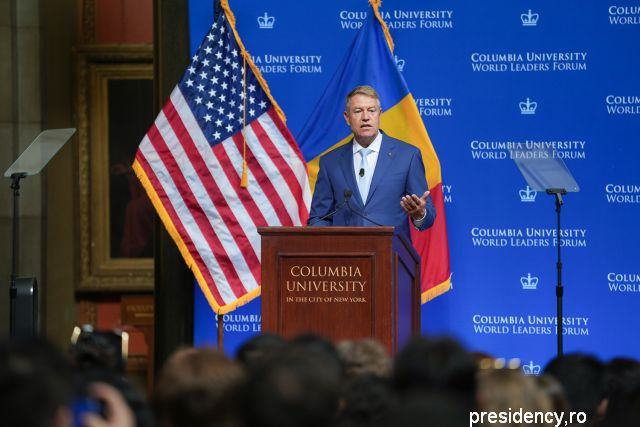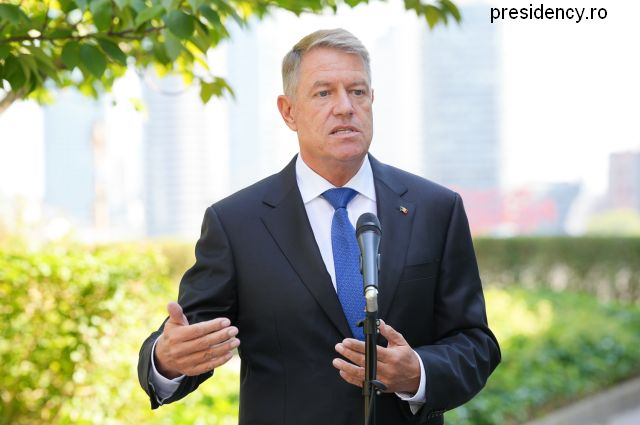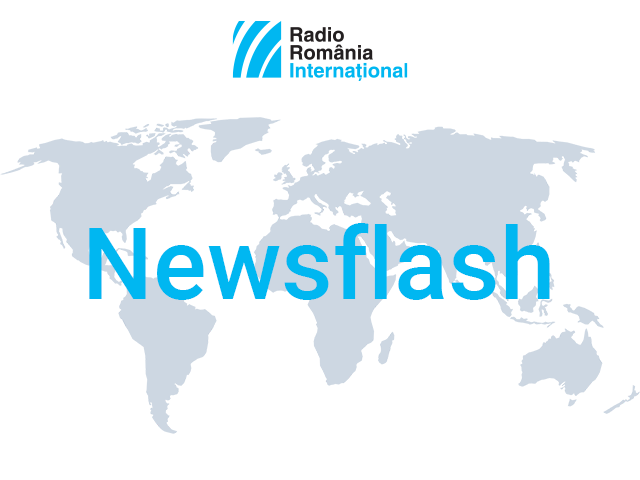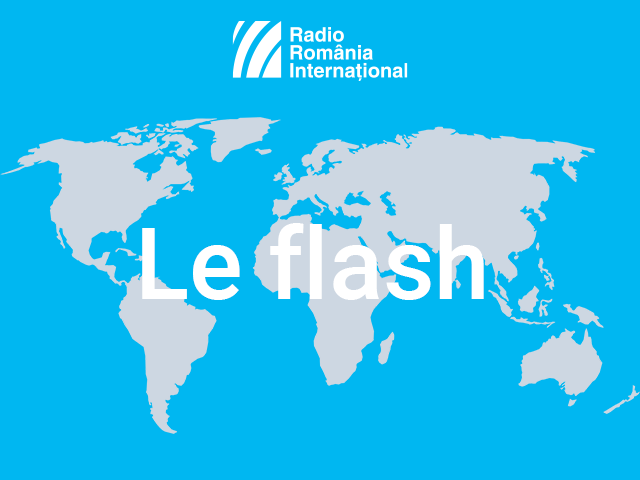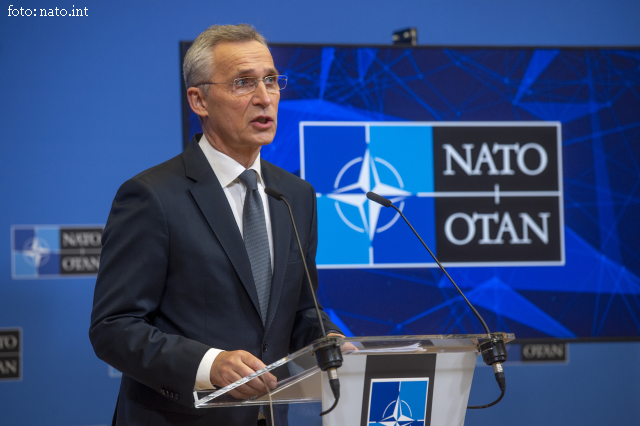UN President Klaus Iohannis will be leading Romania’s
delegation to the 78th session of the UN General Assembly between
September 18 and 22 in New York. In his address, Mr. Iohannis will present
Romania’s views on current global developments, highlighting Romania’s foreign
policy priorities and its contribution to reaching the goals on the UN
multilateral agenda. President Iohannis will also attend the Summit on
Sustainable Development Goals, and will be a guest of honour at the World
Leaders Forum organised by the prestigious Columbia University in New York, where
he will be discussing Romania’s outlook on the war in Ukraine and its impact on
Black Sea security.
PENSIONS A new
version of the special pension law, comprising the amendments requested by the
Constitutional Court, will be endorsed by the end of September, said the
interim Chamber of Deputies speaker, Alfred Simonis. He added the law covers
all categories of special pensions, but because the special benefits paid to
magistrates and other categories cannot be scrapped, as it happened in the case
of MPs, taxation will be introduced, which the Court has accepted. Also,
Simonis said, ceilings must be introduced for each particular profession, so as
to eliminate special pensions of EUR 8,000 or even EUR 14,000 a month. The
Constitutional Court last month sent back to Parliament the new draft pension
law, on grounds that pension benefits currently being paid cannot be readjusted
to different principles than the ones in the law under which they have been
granted.
CEREMONY A military and religious ceremony was held on
Sunday at the Heroes’ Cross on Caraiman Peak in central Romania, to celebrate
95 years since the monument was unveiled. Included in the Guinness Book of
Records, the 40m cross is the highest such monument placed on a mountain top in
the world. It was erected at an altitude of 2,291 m between 1926 and 1928, at
the initiative of and with support from Queen Marie and King Ferdinand of
Romania, as a tribute to WW1 heroes.
FLIGHTS The Romanian airline TAROM announces new flights to and from Chișinău,
in the neighbouring Republic of Moldova, as of September 24. TAROM will operate
additional flights over weekends, to reach a total of 21 weekly return flights,
with prices starting at EUR 85.
MOTORWAYS As of next week Romania will have 1,000 km of
motorway in use, with the opening of the Nuşfalău – Suplacu de Barcău segment
of the A3 Transilvania motoway. Next month the first 20 km of the Bucharest
ring motorway will also be opened, and next year the first 2 segments of the Ploieşti-Buzău
motorway are scheduled to be completed.
SCHENGEN Austria’s opposition to Romania’s Schengen
accession is not targeted against Bucharest, but against this freedom of
movement system, said the Austrian minister for the EU, Karoline Edtstadler. The
statement comes after Bucharest warned it would sue Vienna over its veto to
Romania’s accession. Karoline Edtstadler told the media she understood the
position of Romanian authorities, but added Austria cannot close its eyes to an
already flawed system. She explained the EU should ensure efficient protection of its external
borders before envisioning a Europe without internal
borders. In
an interview to Austrian mass media, Romania’s PM
Marcel Ciolacu said that in case of further opposition from Austria, Romania
will have to take the matter to court and demand compensation for the losses
incurred because of its failure to join the Schengen area.
NATO NATO’s secretary general
Jens Stoltenberg has warned in an interview published on Sunday, that we must
not expect a swift end to the war in Ukraine, as Kyiv carries on its
counteroffensive against Russian forces, AFP reports. The war began in February 2022, when
Russian troops invaded Ukraine. As for Ukraine’s efforts to join NATO, Jens Stoltenberg promised
that sooner or later, Ukraine will be a NATO member. In July’s NATO summit in
Vilnius, Alliance leaders agreed that Kyiv may join NATO once
certain conditions are fulfilled, with the US and Germany emphasising that
these conditions include reforms to protect democracy and the rule of law. In
mid-June the Ukrainian army launched a counteroffensive to push out the Russian
troops from the south and east of the country, but so far only a limited number
of localities have been freed.
TABLE TENNIS Romania’s women’s team was defeated by Germany,
3-0, on Sunday, in the European Table Tennis Championships final in Malmo (Sweden).
Elizabeta Samara lost to Xiaona Shan 3-0 (11-6, 11-8, 11-8), Bernadette Szocs was
defeated by Ying Han 3-1 (14-16, 11-8, 11-8, 12-10), and Nina Mittelham beat
Andreea Dragoman 3-2 (5-11, 11-9, 8-11, 11-6, 12-10), after the Romanian player
lost two match points. Romania was already a European vice-champion, after
winning the silver in 2021, at home in Cluj-Napoca.
RUGBY Defending world champions, South
Africa Sunday defeated 76-0 Romania’s national rugby team in a World Cup Group
B match in Bordeaux (France). A week ago Romania lost to Ireland 82-8 (33-8). Romania’s rugby team is next to play against
Scotland on September 30 and against Tonga on October 8, in Lille. (AMP)

